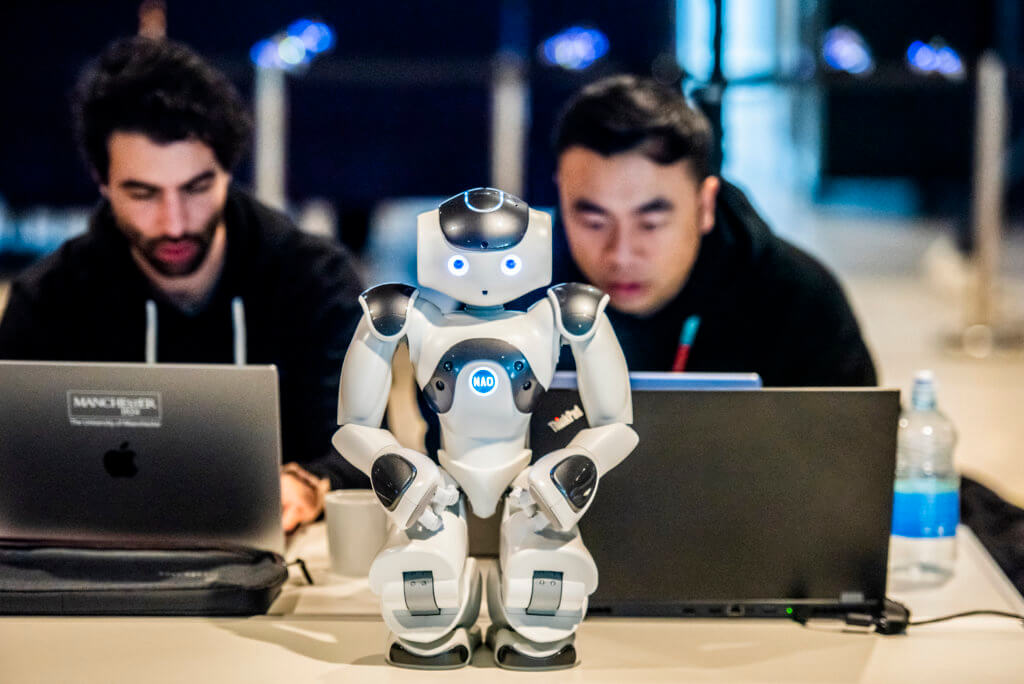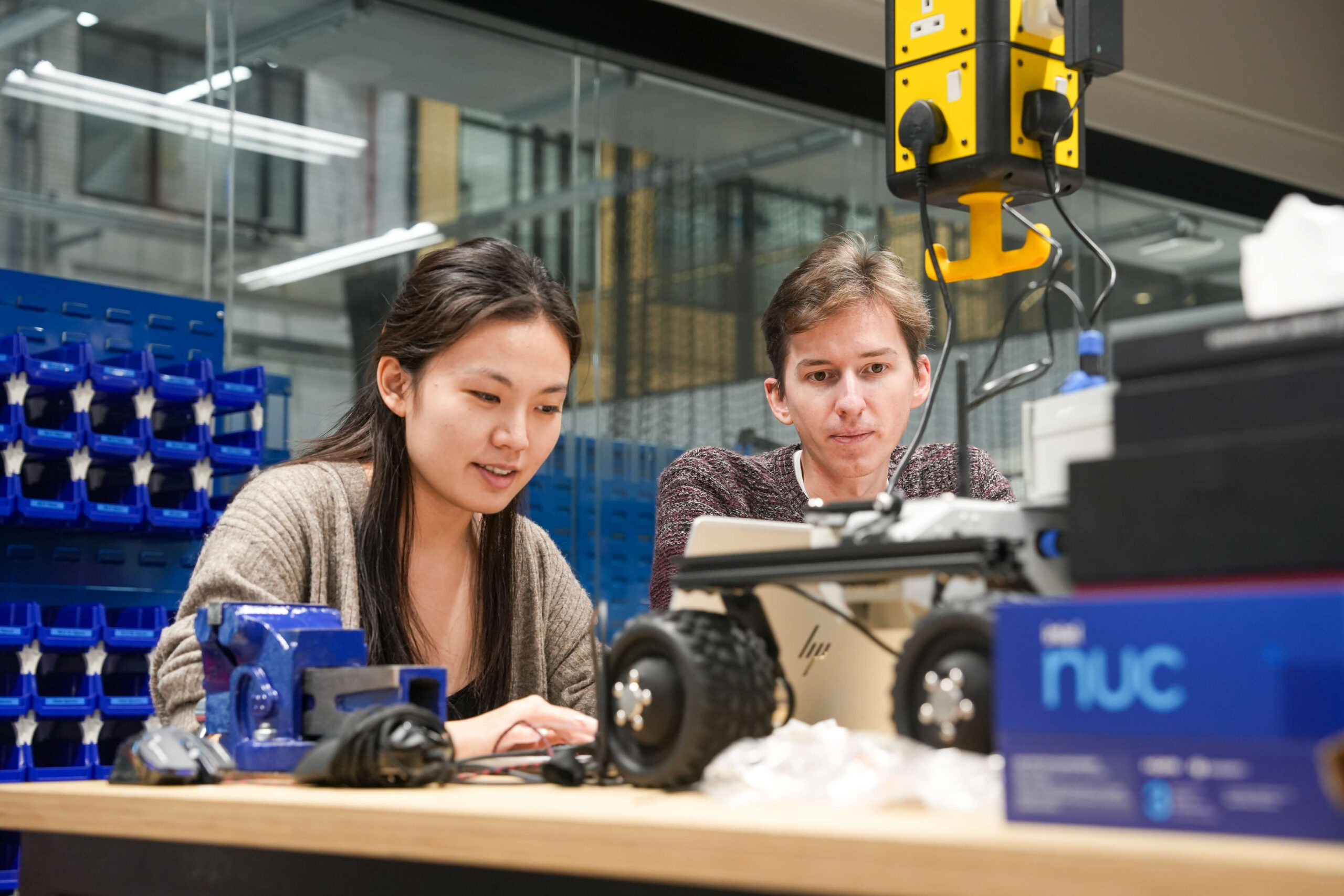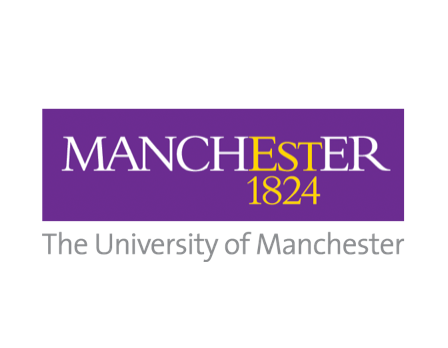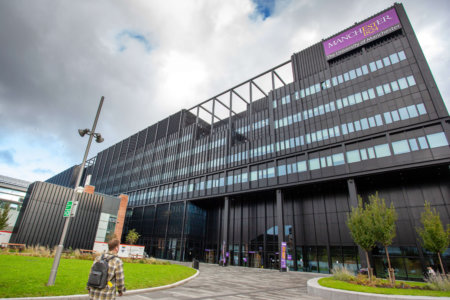From bustling factories to serene farms and the very heart of our homes, robots have become part of our daily lives. They’ve revolutionised how we work and live, for example, by automating repetitive tasks such as mass manufacturing, to independently gliding across our floors to keep them dust-free — all so we don’t have to.
However, the impact of robotics reaches far beyond the familiar, extending into specialised domains like healthcare, agriculture, remote inspections and search and rescue where its potential is boundless. Artificial Intelligence (AI) is propelling this evolution rapidly, equipping robots with unprecedented abilities — a feat once considered a distant dream. Before we know it, they will be assisting in surgical procedures, aiding in rehabilitating stroke patients, fuelling driverless cars, and venturing into environments deemed too dangerous for human presence, such as offshore wind turbines and nuclear storage facilities.
In this era of possibilities, the study of robotics emerges as a gateway to not just a lucrative career but to an active role in sculpting the future of our world. There’s never been a better place for such training than The University of Manchester. As the birthplace of the modern computer and the first English university to offer an engineering degree, its legacy in technological advancement speaks for itself.

Source: University of Manchester, Faculty of Science and Engineering
“Robotics will have a transformative impact on all aspects of our daily lives. The innovative curriculum in the MSc Robotics and Manchester will maximise students’ employability in both academia and industry,” says Simon Watson, Programme Leader.
Those interested in exploring this futuristic discipline should study The University of Manchester’s MSc Robotics programme, which exemplifies the interdisciplinary nature of the field. Designed to prepare students to tackle the multifaceted challenges of robotics, it draws from various engineering disciplines, such as Electrical and Electronic Engineering, Computer Science, and Aerospace Engineering. Notably, the programme is aligned with the United Nations Sustainable Development Goals, underlining its commitment to creating a positive global impact through robotics.

Source: University of Manchester, Faculty of Science and Engineering
Outside the classroom, students learn to work with a range of state-of-the-art equipment, facilities, and cyber-physical systems. All lessons are conducted in the most up-to-date, collaborative environments around — Manchester’s new home of engineering and materials science, which is worth over 400 million pounds.
This purpose-built space boasts hundreds of high-quality study spaces, 52 purpose-built teaching rooms, two blended lecture theatres, a host of teaching laboratories, a unique Makerspace and six computer clusters. It was specifically designed to encourage open collaboration within and between engineering disciplines.
For MSc Robotics graduates, their career options are seemingly endless. With the widespread integration of robotics into diverse sectors such as nuclear, offshore wind, transport infrastructure, logistics, automotive, construction, social care, manufacturing, healthcare, and agriculture, few aspects of modern life remain untouched by this transformative technology.
Graduates will step into a field that resonates with every facet of contemporary society. Potential employers include Dyson, Airbus, Ocado, Saab, GE Aviation, Atkins, Siemens Energy, Ice9 and Ross Robotics.
More academically inclined? The MSc can be a springboard into postgraduate research too, especially since the instructional approach used for it is directly linked with the research objectives of the Centre for Robotics and AI.
Since its inception, it has invested generously to remain at the forefront of developing emerging technologies, including robotics and AI. For example, the dedicated Centre for Robotics and AI, a leading robotics hub in the UK, is renowned for its research that translates into tangible solutions for real-world challenges.
The Centre focuses on creating robotics and AI technologies that genuinely enhance the world we live in. This is evident in its breadth of application domains, ranging from nuclear robotics to autonomous systems with trustworthiness and verifiability and to human-robot interaction for social and healthcare purposes.
Indeed, the University of Manchester’s legacy, dedication to academic excellence, world-class faculty, state-of-the-art resources, and commitment to impactful research make it the perfect place for those aspiring to lead in the field of robotics.
Follow The University of Manchester on Facebook, Instagram, X, and YouTube













